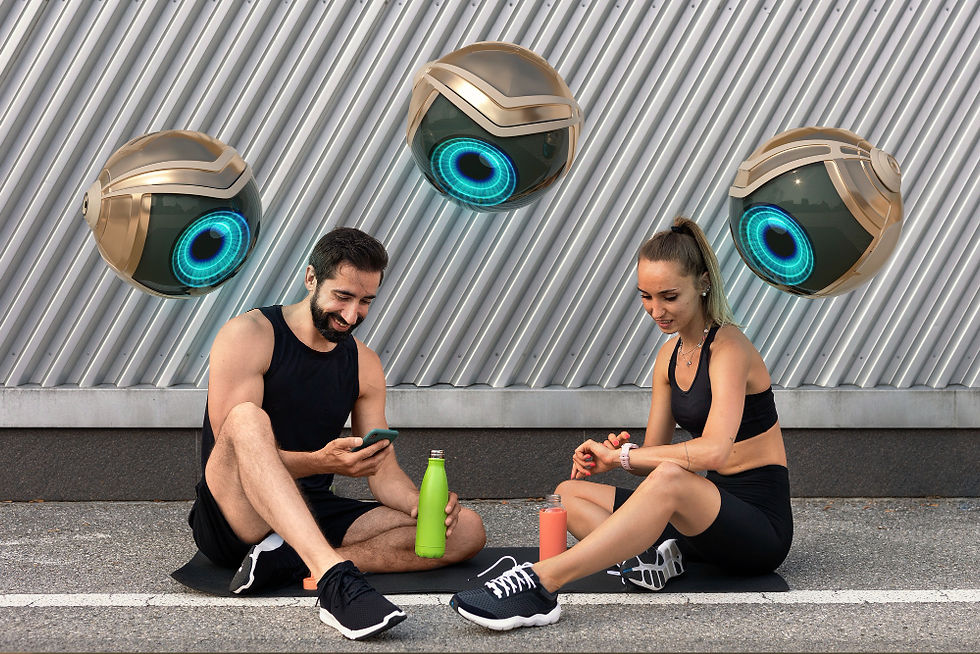AI Coaches in Sports: The Future of Personalized Training
- Nov 2, 2025
- 3 min read
In today’s fast-evolving fitness world, one of the most exciting shifts is the rise of AI sports coaching — a blend of technology, data, and personalization that’s changing how athletes of all levels train. What once required a dedicated team of coaches, analysts, and nutritionists is now becoming accessible through smart devices and intelligent algorithms.
This isn’t the future — it’s happening now.
The Evolution of Coaching
Traditional coaching has always relied on experience, observation, and intuition. Coaches study athletes’ movements, measure performance, and offer feedback based on what they see. While human intuition remains invaluable, it has its limits — and that’s where AI sports coaching steps in.
Artificial intelligence can analyze massive amounts of data in real time: heart rate, speed, reaction time, recovery levels, and even emotional states. Using this information, AI can design hyper-personalized training programs tailored to each athlete’s body, goals, and habits.
How AI Sports Coaching Works
The foundation of AI coaching lies in data and pattern recognition. With the help of wearables, sensors, and connected apps, athletes generate continuous streams of information about their performance.
AI systems then process this data to identify strengths, weaknesses, and areas for improvement. For instance:
Form correction: AI can detect improper movement patterns through motion sensors and provide instant feedback.
Adaptive training plans: Workouts adjust automatically based on fatigue, progress, or injury risk.
Predictive analytics: AI predicts performance outcomes and recommends optimal training loads to prevent burnout.
Mental optimization: Some platforms now analyze mood and motivation, offering insights to keep athletes mentally sharp.
The result? "Smarter, safer, and more efficient training — tailored uniquely to every individual".
Beyond the Gym: Everyday Athletes Benefit Too
While AI coaching may sound like something reserved for professional athletes, it’s quickly entering mainstream fitness. Apps like WHOOP, Tonal, and Freeletics are integrating AI features to personalize user experiences.
Even for beginners, AI sports coaching provides structure, accountability, and motivation — the very ingredients that make a fitness routine sustainable. It bridges the gap between professional-level training and everyday wellness.
Imagine having a coach who never sleeps, always adapts, and learns from every rep, stride, and breath — that’s the power of AI.
Balancing Technology and the Human Touch
Despite its precision, AI can’t replace the human element entirely. Emotional support, empathy, and intuition remain essential to coaching. The future likely lies in collaboration: human coaches using AI insights to make smarter, more compassionate decisions.
This partnership creates a balance between data and emotion, between what technology knows and what humans feel.
The Future of Personalized Performance
As AI technology continues to evolve, AI sports coaching will only become more intuitive and immersive. Virtual reality simulations, biometric tracking, and personalized recovery programs will push performance beyond what we thought possible.
In this new era, athletes — professional or recreational — can truly understand their bodies, train intelligently, and achieve results faster without compromising well-being.
"Intelligence Meets Intention!"
The rise of AI sports coaching is more than a tech trend — it’s a movement toward smarter, more mindful fitness. It empowers individuals to train not harder, but better.
By merging artificial intelligence with human ambition, we’re witnessing the future of performance: one where technology doesn’t replace human potential but helps us realize it more fully than ever before.






Comments